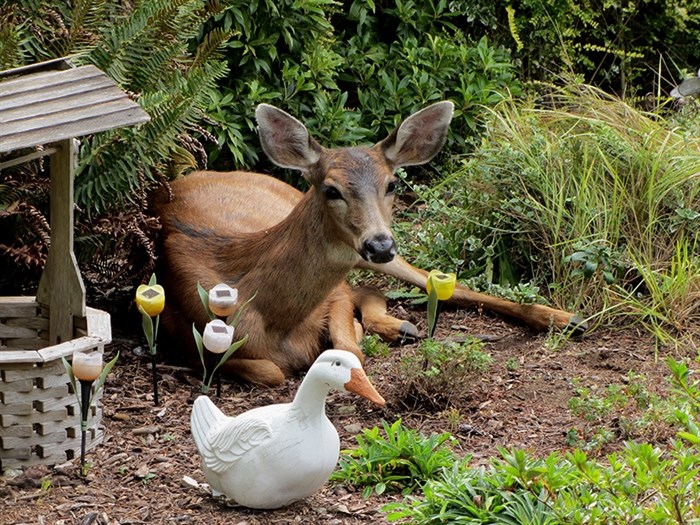
Image Credit: BC SPCA
October 31, 2020 - 9:00 PM
A deadly deer disease has been found on Vancouver Island.
Adenovirus hemorrhagic disease is a highly contagious, lethal virus that is specific to mule deer, white-tailed deer, elk, moose, caribou, with members of the black-tailed deer family (including mule deer) being the most severely affected.
Symptoms of adenovirus hemorrhagic disease in deer include difficulty breathing, foaming or drooling from the mouth, diarrhea (sometimes bloody) and seizures. More chronic symptoms include ulcers and abscesses in the mouth and throat, according to the BC SPCA in a press release. Recently, deer with the disease have been found on Galiano and Mayne Islands and from the Maple Bay area of the Cowichan Valley on Vancouver Island.
The disease can be spread through direct contact between deer or their fluids and airborne transmission between deer may also occur, according to the SPCA.
There is no treatment or vaccine and the disease course is usually rapid and fatal, with young animals being more susceptible.
While there is no known human health risk from the virus, and no evidence that it can be transmitted to humans, hunters are being advised not to consume meat from animals found dead, obviously ill or acting abnormally prior to death. Research also indicates the disease is not transmissible to livestock and pets, according to the SPCA.
To help prevent the spread of AHD and protect our local deer populations, the public is being asked not to feed wildlife – artificial feeding or water sources can increase aggregations of deer and in turn increase the chance for transmission from one individual to another.
Additional control measures are also in place restricting transfers of live animals as well as disposing of dead deer by deep burial.
If you see a sick or distressed deer or have found a dead deer and need help to assess the situation, call the SPCA's Provincial Call Centre at 1-855-622-7722. Observations of deer displaying acute or chronic symptoms of the disease can be reported directly to the Wildlife Health Laboratory at 1-250-751-7246.
To contact a reporter for this story, email Carli Berry or call 250-864-7494 or email the editor. You can also submit photos, videos or news tips to the newsroom and be entered to win a monthly prize draw.
We welcome your comments and opinions on our stories but play nice. We won't censor or delete comments unless they contain off-topic statements or links, unnecessary vulgarity, false facts, spam or obviously fake profiles. If you have any concerns about what you see in comments, email the editor in the link above.
News from © iNFOnews, 2020